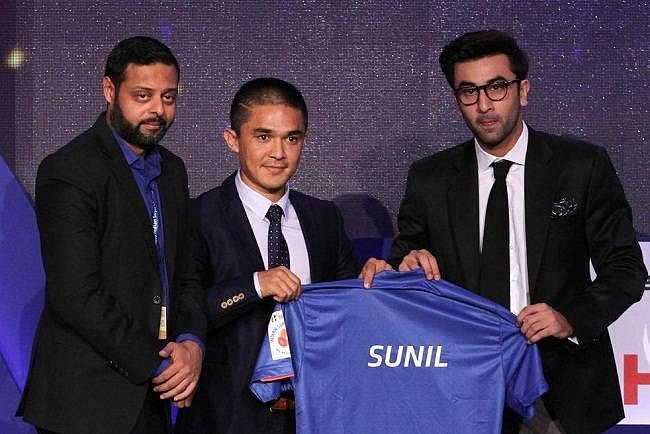
Interview with Mumbai City FC CEO Indranil Das: We will sign one more international striker
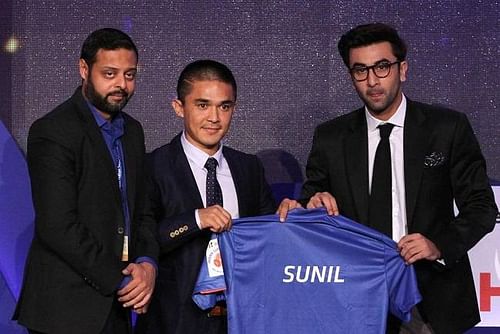
Mumbai City FC had a poor year on the pitch in the first season of the ISL as they finished seventh among eight teams. They faced issues with injuries as their marquee player played only about 60 minutes in the whole of the ISL 2014. As we head towards a new season, the club is preparing for a fresh start with the new campaign. They have added players and had a change of coach while they are keen to add further in the coming days.
The CEO of Mumbai City FC Indranil Das Blah sat down with Sportskeeda for an interview.
Having witnessed and experienced the ISL in its first season, on a scale of 1-10, how successful would you say it was from a neutral standpoint and from the Mumbai City perspective?
Overall, I would say the ISL was an 6/10 in its debut season. It wasn't a great season from the club's perspective though, maybe a 4/10, because we simply did not live up to the expectations we set for ourselves. Off the pitch we did pretty well in trying to bring the crowds to the stadium and creating visibility, we had a good number of people attending the matches every game despite knowing little about how the ISL would be received among the Indian audience.
On the pitch, It was a season where we performed below par for more reasons than one. There were elements of unpreparedness and sheer misfortune with injuries.
What were the shortcomings in your team last time around and how do you plan to address them?
The biggest mistake we made was probably leaving the coaching selection too late. We assumed that in a three-month league, the coach would not play a big role and only announced Peter Reid as the boss about a month before the start of ISL 2014 and he joined up with the team only about 15 days before the tournament started.
It did not give enough time for the coach and the players to get together into a unit. There was little or no time for the players – especially the Indian players – to build a rapport.
It was all done in a short space of time which, looking back now was a huge error. But this time around we've started bright and early identifying the coach and starting preparations early, a lot of work has gone into the team even at this early stage and hopefully it will make the difference.
Moreover we also suffered from injuries to key players, some of our best players Nicolas Anelka played 7 games, another player Andre Moritz played about 8 games and our marquee player Freddie Ljungberg played a maximum of 60 minutes. So It's something we are working on in terms of rehabilitation off the pitch.
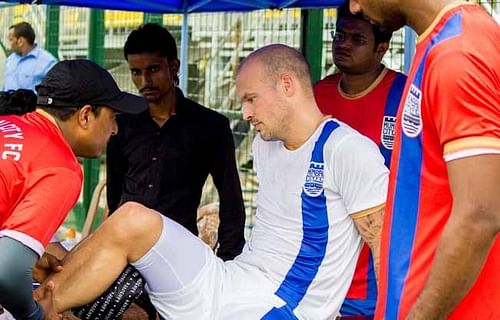
You had the second best defensive record in the ISL in 2014, this year you have gathered a host of attacking talent, would it be fair to say you have faith in your defensive capabilities and are now focusing on the other aspects?
We have the spine of our defence still intact, Pavel Cmovs was solid for us last time around and he's stayed on. We have also made a great signing in Darren O’Dea who's got the experience and the qualities it takes to put in the defensive line we need. We also have the likes of Fanai who we were able to get in the ISL Draft along with Ashutosh Mehta so I think we've done well there.
But we simply did not score enough goals last time around, we started out with a certain outlook towards the way we were going to play but somewhere along the way we came under the cosh and it forced us to change our gameplan. If we wanted to play a short passing game and knock the ball about, many times we simply were not able to do it consistently and were constantly forced back.
We're trying to change that in the coming season. We now have the quality of Sunil Chhetri and even players like Sony Norde who can make the difference.
You had Peter Reid incharge of the club last season and this time around you've chosen Anelka in the lead, walk us through that decision.
Contrary to popular belief, Nicolas Anelka spent a large part of last season motivating and driving the players even when many times we were not doing too well. He expressed a desire to be more involved with the decisions taken by the club, the signings and the strategy. He also seemed to be more in touch with the players and sensitivities of the game in India.
Over the last year we have been in touch regularly talking about what the team needs, where we can improve and it was sort of a mutual decision that we came to, and it's great that it happened early and we can kick on from here.
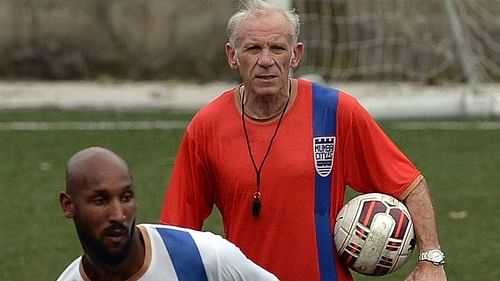
Anelka's position as manager also aids the club in terms of continuity, there will be some element of familiarity with him and that should make the process of team building a little easier this time around. He has a big part to play along with the assistant coach Oscar Bruzon in how the team shapes up next season.
Having experienced the ISL 2015 auction and draft first-hand, how do you feel Mumbai fared? Do you think you got all the players you wanted?
It could not have gone better. I mean, we got the Indian captain Sunil Chhetri for a price that we didn't think we would have. We went in with a top limit and we stuck to it, despite that we were able to get him.
Even during the draft we were able to get some players we had identified earlier in the first few rounds, other teams wanted to trade having identified their quality as well but we refused and I think we did pretty well to get the players that we had decided we wanted to bring in.
Since you got most players that you were looking for, are you happy with the squad you have or are you looking to make more additions?
Well, we've got a lot of quality already but we're definitely going to sign one more good international striker before the start of ISL 2015. We think the presence of another quality forward will really bolster our chances and that's where we could add in the next few days, you can expect to hear from us soon about that announcement.
Having made your own preliminary preparations and seeing how other ISL clubs have gone about their build-up, what are your expectations for the upcoming season?
I think all the clubs are strengthening now. Pune City FC, for example, have signed many players and others are announcing their signings as well, so I think the standard of the ISL as a whole will go up this season. If it was at a 6 last season it will make it up to an 8 (out of 10) this season because of the quality that is being added.
As a club, with the effort that has gone into next season and with the amount of planning that we have been a part of, it would be a disappointing result if we do not make it at least in the top two next season. So the goal will be to make it to the top four, then the finals.
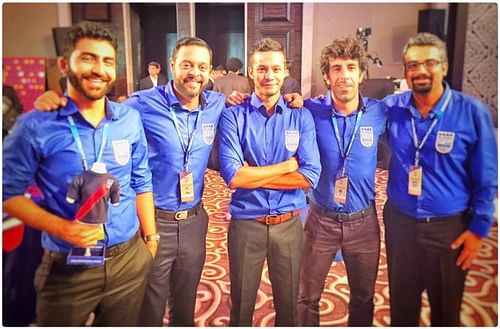
We've heard Ranbir Kapoor say in the past that he wants Mumbai City FC to be the most professionally run club in Asia, what are the steps the club is taking towards this goal?
If you asked any of our players from last season they would tell you that the Mumbai City FC players are the best taken care of. We are doing our best to not only implement the best standards but also to raise the level of training and infrastructure that the players can enjoy and improve in.
What are the challenges of running an ISL club since its inception?
When we started off, we had little or no idea what we were dealing with. We started from scratch, the closest association that people could make was to the IPL and that’s really an unfair comparison to make. We did not have any benchmarks by which we could set our goals.
Now that one season has elapsed, we have an idea of what the benchmark is, we have a more structured plan and can pitch better for sponsorship. Moreover, the accommodation, travel, stadium ticket sales, vendors and partners are already in place and will remain the same; so there is some familiarity of the process so we are more prepared the second time around.
All ISL teams had a chance to visit West Brom in May. How helpful was the interaction with West Brom? What were your takeaways?
It wasn't just West Brom but nearly six clubs including Arsenal and Crystal Palace. Of all the clubs we visited, Arsenal would be the dream, as in it would be the ultimate aim to become a club with the size and stature of Arsenal. But we learnt more from clubs like West Brom because they are closer to us in terms of our budget, spending and planning.
We gathered a lot of information about the way things are run in terms of the structure of such a club, how they handle ticket sales, the allocation of their resources and more. It wasn't just us but all clubs were happy with the interaction and learning experience.
We also spent some time with the English Premier League, learning their method of functioning, it will help us apply some of it to our leagues and clubs in an attempt to make them better.
We've seen some activity from Mumbai City FC on the ISL Grassroots programme front, having laid some sort of a foundation, What is the road ahead?
Essentially we divided the city into zones, every zone would have some football theory classes and teaching followed by a grassroots festival for each zone. So if today Zone 1 had a festival, the next week it would be in Zone 2 and so on.
It's a gradual growth process from the first year. We are going in phases, so if the first year was about brand recognition, the second will be about nurturing talent and then we'll look at proper training and infusion of talent to the first team and so on in years 3 and 4.